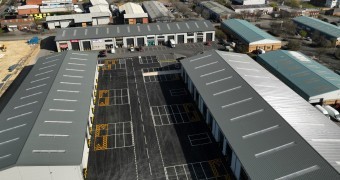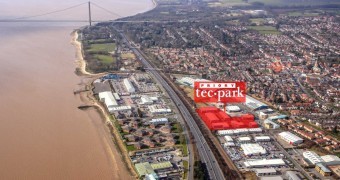What is a heat pump and how does it work?
A heat pump collects heat from the air or ground outside the home, concentrates it and uses it to power the property’s central or underfloor heating. Unlike a gas boiler, heat pumps don’t ‘create’ new heat. Instead, they absorb heat from the external environment and use a compressor and refrigerant to move the heat into the central heating system for heating and hot water.
A lot has been said about heat pumps over the last few years. Some have called them “the future of heating”, while others say they’re “expensive to buy and run”.
What we do know is that heat pumps are extremely efficient. They create around three units of heat for every unit of energy you put in. However, unlike traditional gas boilers, they run on electricity, which is around three times as expensive as gas.
With so many conflicting messages, it’s difficult to know if a heat pump is a smart investment or even if it’s suited to your property. With that in mind, we cover some of the basics before looking at the heat pump pros and cons.
What’s the difference between air source and ground source heat pumps?
Ground source and air source heat pumps are the most common heat pumps in the UK. The main difference is where they absorb the heat from - the ground or air. Overall, ground source heat pumps are more efficient but more expensive to install. You also need a good amount of outdoor space to install a ground source heat pump as the pipes are buried in the ground.
Commercial property solutions
Our team of building consultants provide a range of commercial property solutions, from specialist building surveys to architecture and education funding application support. Speak to one of our experts to find out how we can help you deliver your objectives.
What are the advantages of heat pumps?
They last longer than traditional gas boilers
Heat pumps are more expensive than gas boilers but typically last longer. A well-maintained heat pump can last 20 years or more, while gas boilers rarely reach 15.
They’re very efficient
According to the Energy Saving Trust, heat pumps are around four times more efficient than gas boilers and generally produce around three times more energy than they take in. That reduces energy use and carbon consumption and can lower energy bills over the long term.
They’re more sustainable
Heat pumps do not burn fossil fuels or directly release carbon emissions into the atmosphere. They run entirely on electricity, and when that electricity comes from renewable sources, they represent a much greener way to heat your home.
Government grants are available
Although they cost more upfront, the government’s Boiler Upgrade Scheme gives property owners £7,500 off the cost of buying and installing air and ground source heat pumps. You do not have to repay the grant and most UK properties are eligible.
They’re low-maintenance
Generally speaking, heat pumps require less frequent servicing, maintenance and repairs. There are also fewer safety concerns and risks as they don’t burn gas.
They’re easy to use and control
The installer will set up the core parameters of your heat pump so you’ll have minimal interaction with the controls. You can then adjust your room temperatures easily via a third-party app.
Some can cool as well as heat
With our summers getting hotter, sales of air conditioning systems for UK homes and businesses are on the rise. However, many heat pumps can reverse their operation to cool in hot temperatures. That allows you to heat and cool your property with a single system.
Air source heat pump disadvantages
Your electricity usage will rise
Heat pumps are powered by electricity, which is roughly three times more expensive than gas per unit. However, heat pumps are usually cheaper overall due to their higher energy efficiency. The cheapest way to power a heat pump is through a solar panel system. Although the setup costs are high, it will reduce your running costs to almost zero.
They’re more expensive to buy and install
Even with the £7,500 grant from the Boiler Upgrade Scheme, a heat pump is still likely to be more expensive than a new boiler. In the UK, the average price of an air source heat pump is around £14,000, while a gas boiler is around £3,000. That’s still £3,500 less than a heat pump when you factor in the grant.
You may need to install larger radiators
Heat pumps operate at a lower flow temperature than gas boilers, and you may need a larger surface area to transfer that heat to your home. To generate the same amount of heat as a gas boiler, you will typically need radiators that are around two times bigger than the average. Alternatively, you could opt for an underfloor heating system.
The installation can be disruptive
Retrofitting a heat pump to a property can be disruptive. You may have to make holes in the building cladding to fit an air source heat pump, and ground source heat pump pipes must be laid in a trench 1.2-1.5m below ground level. You’ll also need a well-insulated property for a heat pump to be effective, with loft, cavity wall and window insulation as a minimum.
They’re not completely sustainable
Although heat pumps are more energy efficient, you still have to think about where your electricity comes from. Coupling them with solar panels is an effective carbon-free model. Some of the fluids used in heat pumps also have wider sustainability implications, although you can use biodegradable fluids as an alternative.
Commercial heat pump solutions
Heat pumps represent an efficient and sustainable residential and commercial heating solution, but they’re not necessarily the best choice for every property. The right heating system for you depends on your property type, existing insulation and budget.
Contact Eddisons to find out whether a heat pump can work for you. We can help you decarbonise commercial properties and design new buildings with sustainability as a priority.
Experts in commercial property
Contact our team of leading auctioneers, property agents, and RICS-qualified surveyors today.












